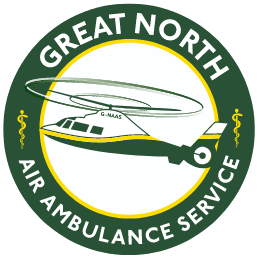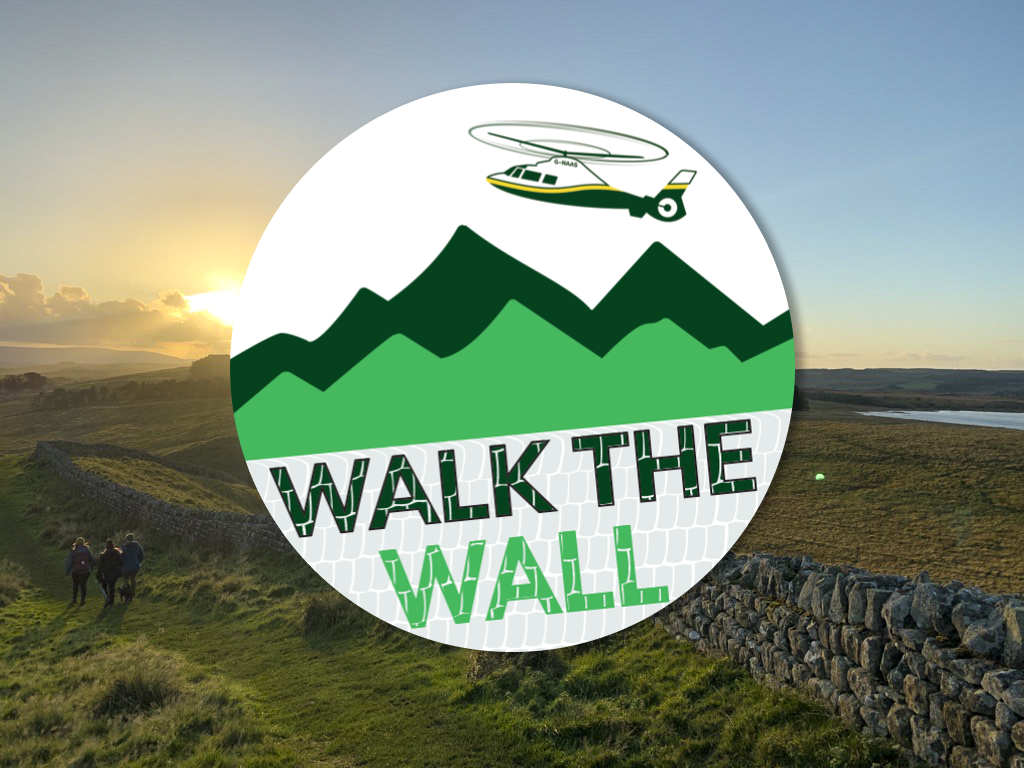As we approach our 22nd year as a registered charity, it’s incredible to think about how much we’ve achieved in this time. While there are certainly many highlights, we’ve compiled the top ten things you need to know about GNAAS.
Charity donations
In May 2002, The Great North Air Ambulance Service (GNAAS) became a charitable company, registered with the Charity Commission. Our headquarters opened on Grange Road in Darlington, and we began having an aircraft based at Durham Tees Valley Airport (now Teesside International Airport).
Since becoming a charity, this means we are not government funded and rely on public donations to survive. It currently costs £8.5m a year to remain operational, and this is raised by the incredible individuals, groups, and businesses who are either donate or take part in fundraising activities to support our charity.
Recycling operation
Our clothes recycling operation, also known as the ‘Trading Company’ began active trading in 2003. We mainly collect clothing, household linens, shoes and handbags, and the money generated through sales of these items is reinvested back into the charity
The areas our collection teams visit include County Durham, the Wear Valley, Tees Valley, Northumberland and Cumbria.
You can book in a collection by filling out a short form on our website, or alternatively, book a collection via our Facebook page facebook.com/GNairambulance, or by calling 01325 308 139.
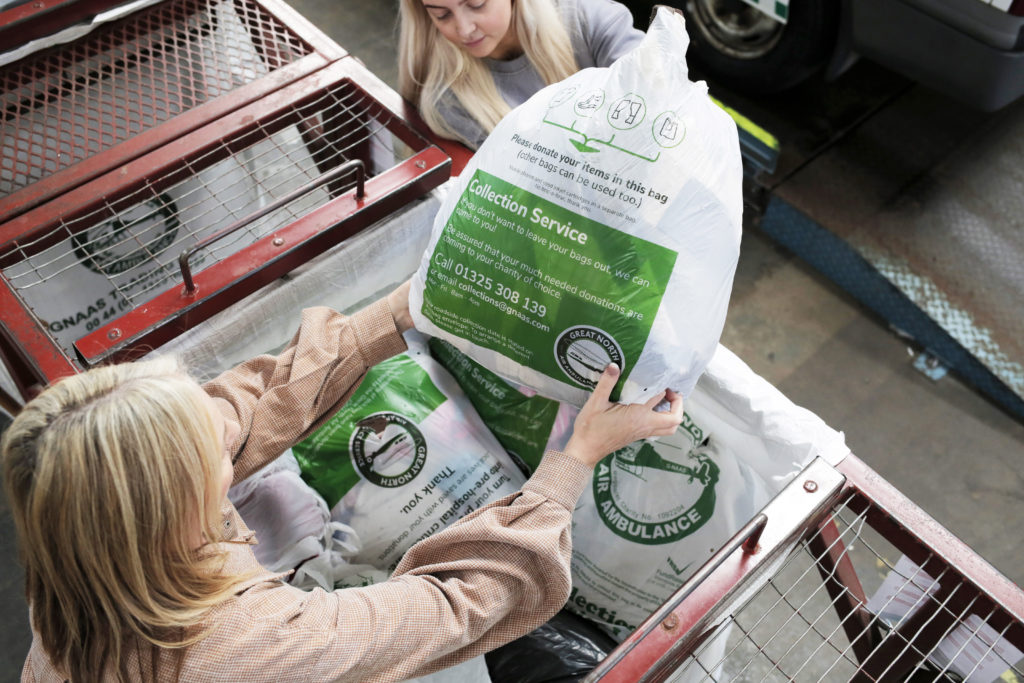

Cumbria’s first air ambulance
Cumbria’s first dedicated air ambulance was unveiled in August 2004, and affectionately called the Pride of Cumbria. At the time of the launch, this aircraft covered five days a week, and our other helicopters based in Blyth, Northumberland and Teesside, were on duty seven days a week and covered the two days the Cumbria helicopter did not fly. We’ve since progressed to being operational 365 days a year across the region.
Blood on board
In January 2015 our charity became one of the first in the UK to carry blood on our air ambulance missions after the launch of the Blood on Board project. This meant our team could deliver blood transfusions outside of hospital.
The following year, fresh frozen plasma was introduced on our aircraft and rapid response vehicles to further improve patients’ chances, and in 2022 we celebrated administering blood transfusions to 500 patients.
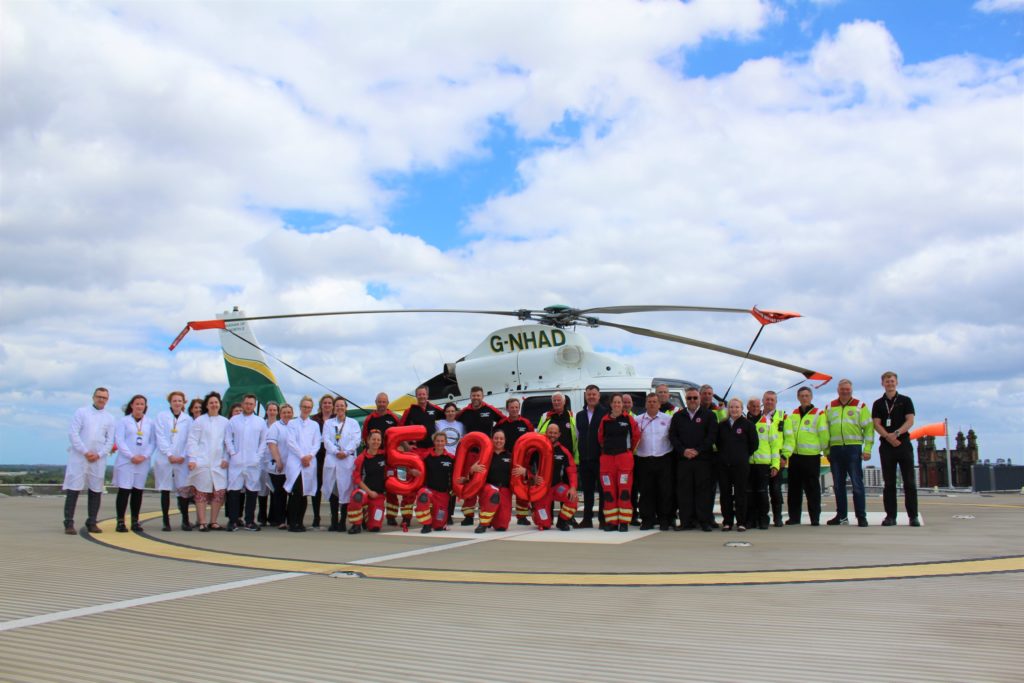

Night-time service
In April 2015 our charity teamed up with North East Ambulance Service to provide a paramedic and doctor team on Friday and Saturday nights, operating on a rapid response vehicle. Hundreds of patients were treated in the first 12 months of the service and we recognised how vital it was that our team covered the rest of the nights.
We’ve been working hard to raise the additional money needed to operate 24/7 and we now offer this service in the North East and cover four nights a week in Cumbria, with the hope of expanding this soon.
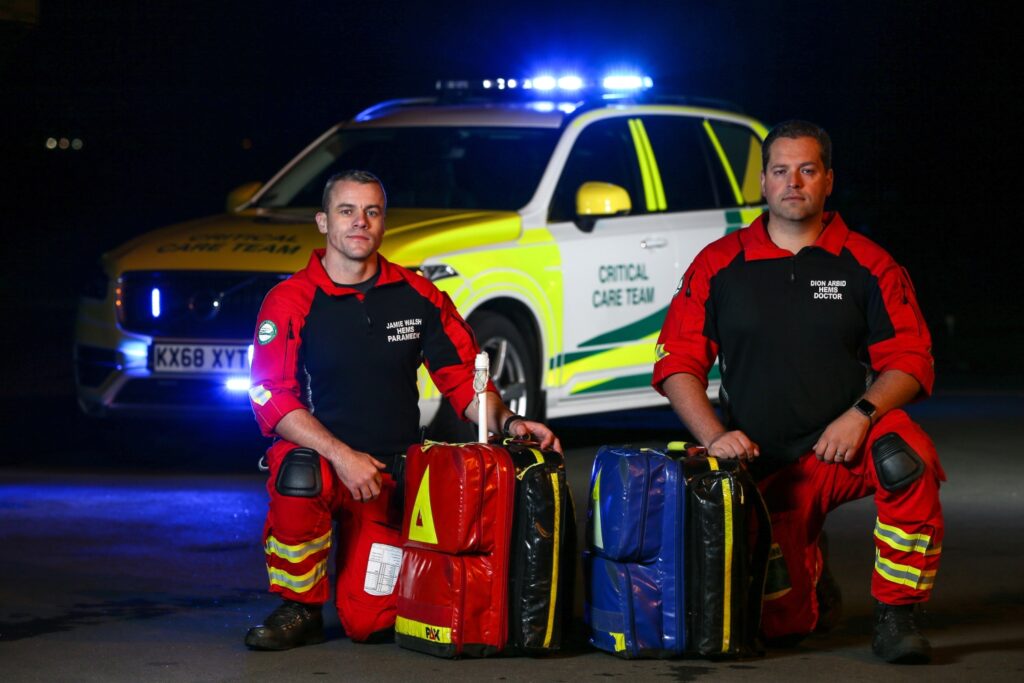

Open chest surgery
In 2017 our critical care team performed a successful thoracotomy (open chest surgery) when a man was stabbed and left for dead in Horden, County Durham. The footage of this surgery was the first time a pre-hospital thoracotomy had been recorded in the world and became a vital training aid for our teams as well as other pre-hospital teams. Our team have since carried out several successful thoracotomies.
GoodSAM
In 2018 we became one of the first emergency services in the UK to utilise the GoodSAM app in its deployment decisions. The app allows our team to see the scene of an incident through a bystander’s camera phone, simply by sending them a text message. This means our team are able to make more informed decisions before deploying the aircraft to an incident.
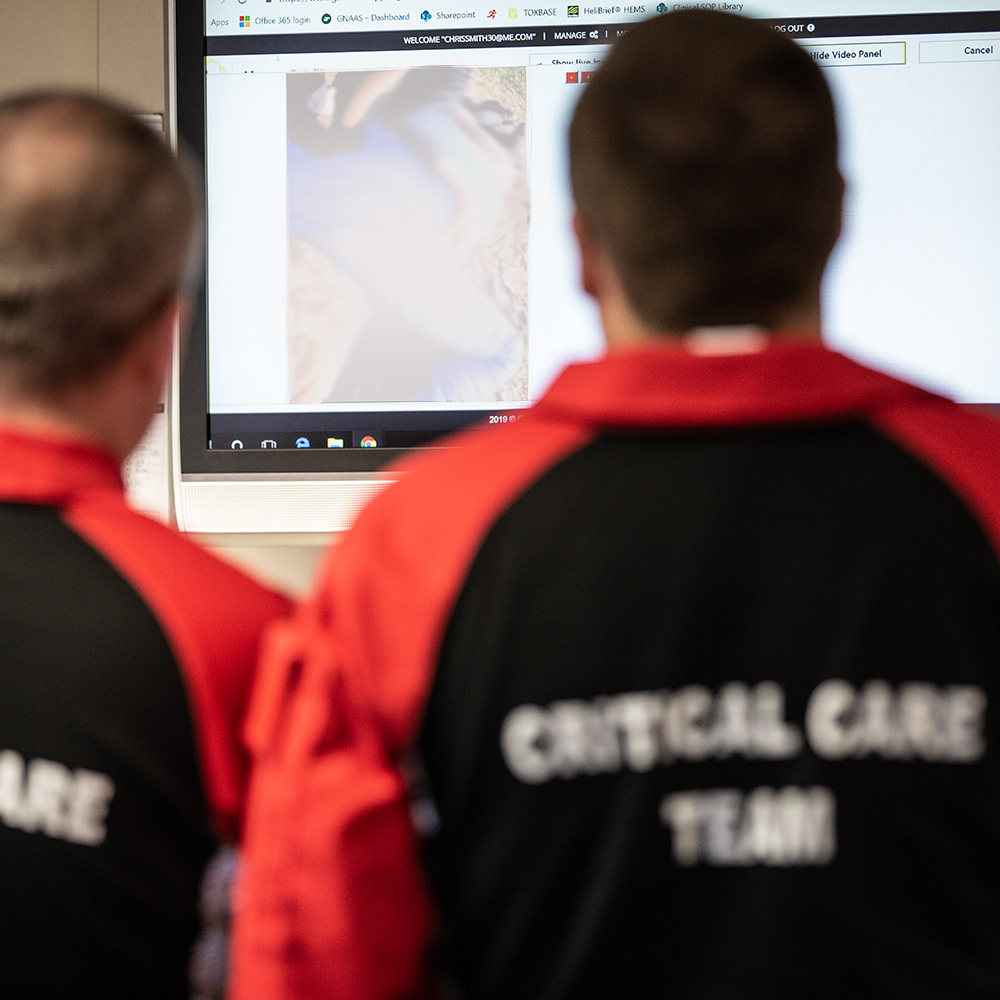

Jet suit
From 2020 onwards, we explored the concept of a jet suit paramedic and teamed up with Orsted, one of the world’s largest and most innovative renewable energy companies and Gravity Industries, the designer and manufacturer of Jet Suits.
The three organisations worked together to understand whether the technology of jet suits could play a part in remote medical response.
Richard Browning, founder and chief test pilot for Gravity Industries, tested the endurance of a jet suit at Scafell Pike and Sharp Edge in the Lake District, and ascended Helvellyn in three minutes 30 seconds, compared to one hour 15 minutes on foot.
Throughout 2022 our paramedic Jamie Walsh attended training sessions flying the jet suit at Gravity HQ based in Goodwood, and then in the Lake District once competent, he flew in the suit off-tether.
The project represented a true world first where the concept of improved human mobility was explored in the medical response world.
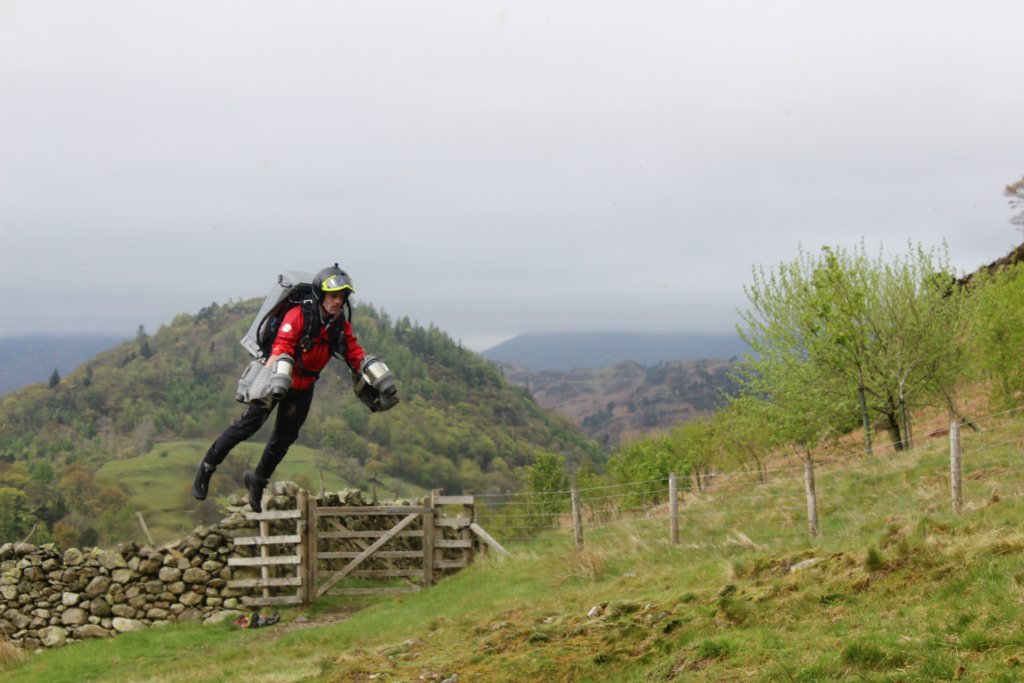

Training courses
GNAAS has a long history of training both doctors and paramedics in pre-hospital medicine.
We welcome clinicians from all over the world to our training courses and our aim is to arm participants with the skills they need to thrive in this complex and challenging area of patient care.
We strongly believe that part of our role as a high-performing service should be the dissemination of knowledge and skills to others so that as many patients as possible can benefit.
Some of the training courses we offer include ‘Pre-Hospital Emergency Medicine Crew Course, Pre-Hospital Emergency Anaesthesia Course, and the Enhanced Pre-Hospital Resuscitation Course.
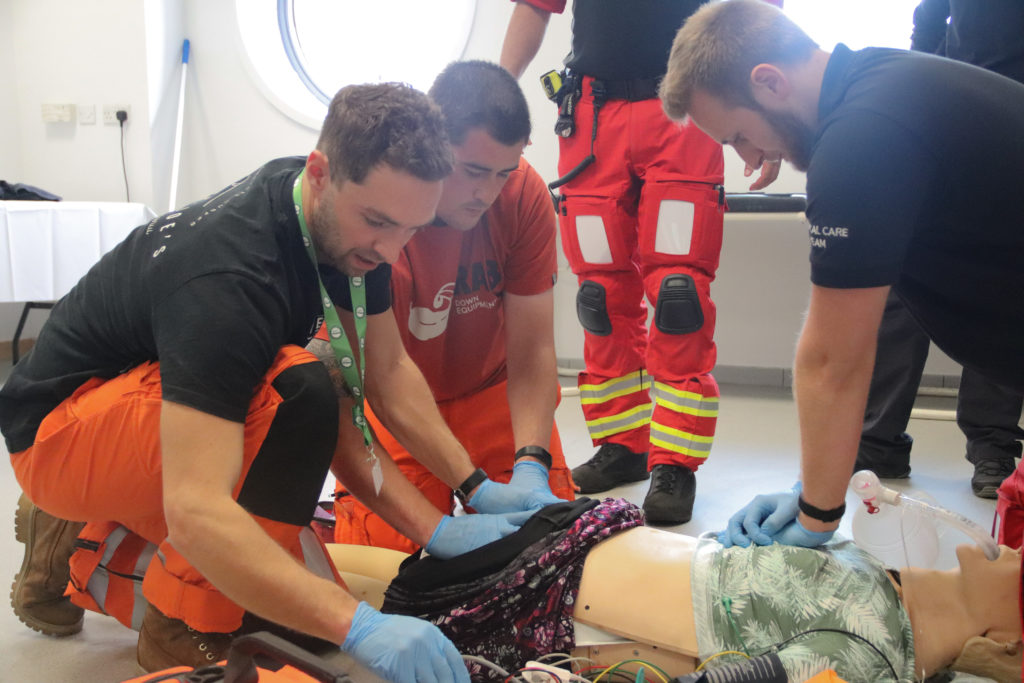

Charity services staff and volunteers
While our critical care team in their red and black uniform are a familiar sight across the region, behind the scenes are our charity services staff who coordinate, administrate, and encourage fundraising activity.
We have several departments including, IT, HR, Finance, Trading Company, and Income and Engagement.
Together this small and committed team help to raise the vital funds needed to sustain our charity.
All of the above are supported by the dozens of volunteers who selflessly give up their time to support our charity.

